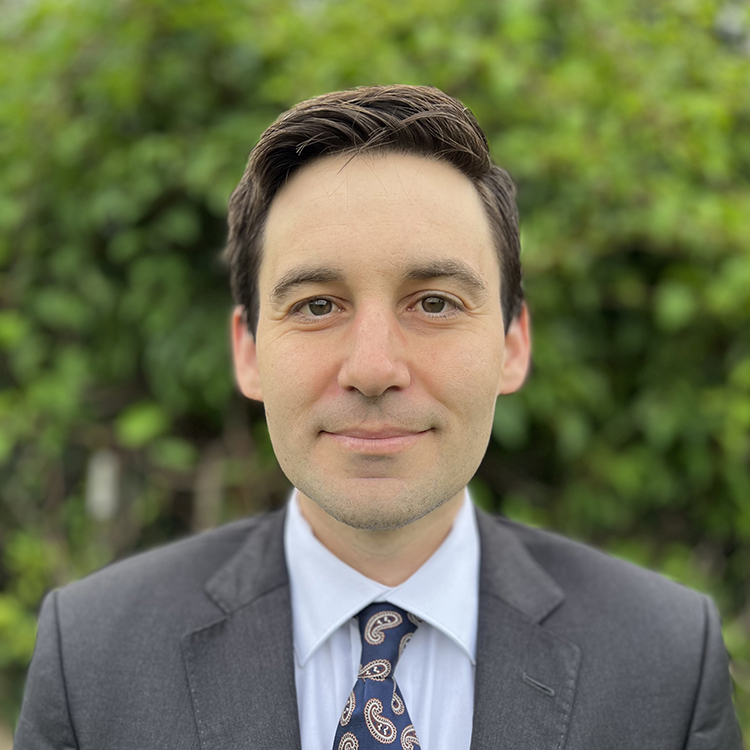The Intersection of Employment and Criminal Law
Ben Pyle's scholarship examines the relationship between the US criminal justice system and employment opportunities.

The Intersection of Employment and Criminal Law
Ben Pyle’s scholarship examines the relationship between the US criminal justice system and employment opportunities.
“The laws and practices governing life after contact with the criminal justice system have enormous ramifications for vast portions of the population, and yet we know relatively little about how often different legal tools are employed and still less about their impacts” says Benjamin Pyle, newly appointed associate professor of law at Boston University School of Law.
Pyle’s scholarship, which focuses on empirical legal studies, employment law, and criminal law, is particularly concerned with how the law influences employment prospects and post-conviction opportunities for people with criminal records. Professor Pyle recognized the challenges decision-makers face in effectively shaping post-arrest outcomes without understanding the casual impacts of the criminal justice system’s policies and practices, and was motivated to pursue this type of research.
“My primary research goal is to shape and inform legal practices to improve outcomes after contact with the criminal justice system, and to reduce the disparities the legal system generates,” Pyle says. “I am particularly focused on the relationship between the criminal justice system and employment.”
Prior to joining BU Law, Professor Pyle worked with the Equal Employment Opportunity Commission, where he focused on federal employment of people with criminal records, researched “Ban-the-Box” policies, and provided analysis and consulting for employment law cases to support expert witnesses. He has also worked with the National Employment Law Project to improve the design and implementation of unemployment insurance systems, and the American Civil Liberties Union and the Washtenaw County, Michigan, Prosecutor’s office on efforts to increase prosecutor data transparency. In addition, Professor Pyle has contributed research to the Criminal Justice Administrative Record System (CJARS) at the University of Michigan, a data infrastructure project revolutionizing research and statistical reporting on the US criminal justice system.
The laws and practices governing life after contact with the criminal justice system have enormous ramifications for vast portions of the population, and yet we know relatively little about how often different legal tools are employed and still less about their impacts.
“Research has demonstrated that a lack of employment opportunities, especially for those with a criminal record, damages returning citizens, hampers national productivity, exacerbates racial income inequality, increases crime rates, and causes many other problems,” Pyle says. “Seeking to improve post-conviction outcomes has led me to research policies upstream from a conviction within criminal law, and downstream within employment law.”
Through his teaching and scholarship, Pyle hopes to provide BU Law students with the tools to appreciate and carefully evaluate empirical claims as they relate to legal arguments. “Without fully understanding the scope of consequences created by a criminal conviction, a defense attorney may be too likely to accept a plea deal, a prosecutor might bring more charges when a diversion would better improve public safety, or a policymaker might write laws that inadvertently decrease public safety and deter employers from hiring workers with criminal records,” he says. Pyle’s research aims to address this knowledge gap and build out new statistical methodologies through partnerships with government agencies and other scholars to gather and analyze data. These measurements allow for previously unavailable statistical descriptions of the criminal justice landscape that shed greater light on the impact and effects of a criminal conviction, and offer guidance on generating more equitable and effective policies.
Professor Pyle’s work has been cited by advocates, judicial opinions, and policy makers, and was featured in the The Champion, the magazine of the National Association of Criminal Defense Lawyers, as part of its “Getting Scholarship into the Courtroom” project. His articles have been featured in several law reviews and peer-reviewed journals, including the Notre Dame Law Review and the International Review of Law and Economics. His research has been recognized with the University of Chicago’s Donald M. Ephraim Prize in Law and Economics and the John E. Parker Memorial Prize in Labor Economics and Human Resources.
Professor Pyle earned his JD from the University of Michigan, where he graduated magna cum laude and Order of the Coif. He joins Boston University School of Law with an MA and PhD in economics from the University of Michigan. Pyle earned a BA, magna cum laude, in philosophy, politics, and economics and mathematics from Claremont McKenna College. In his free time, he enjoys the outdoors, and can be found biking, rock climbing, and hiking with his dog.